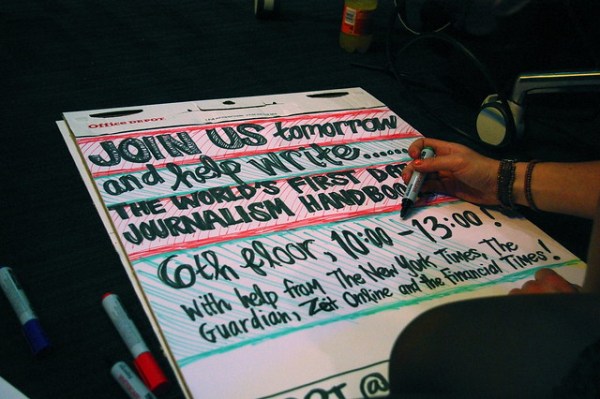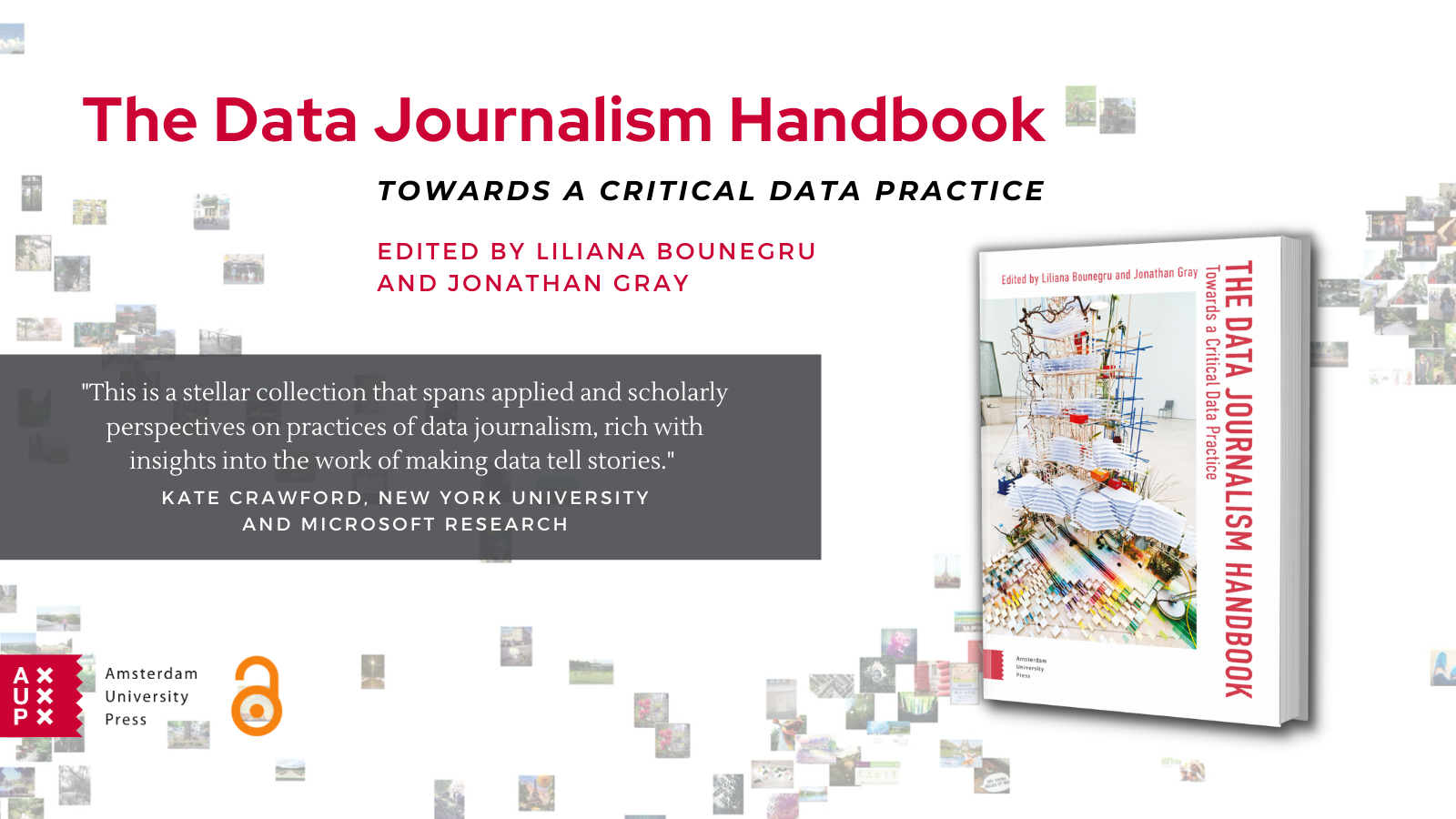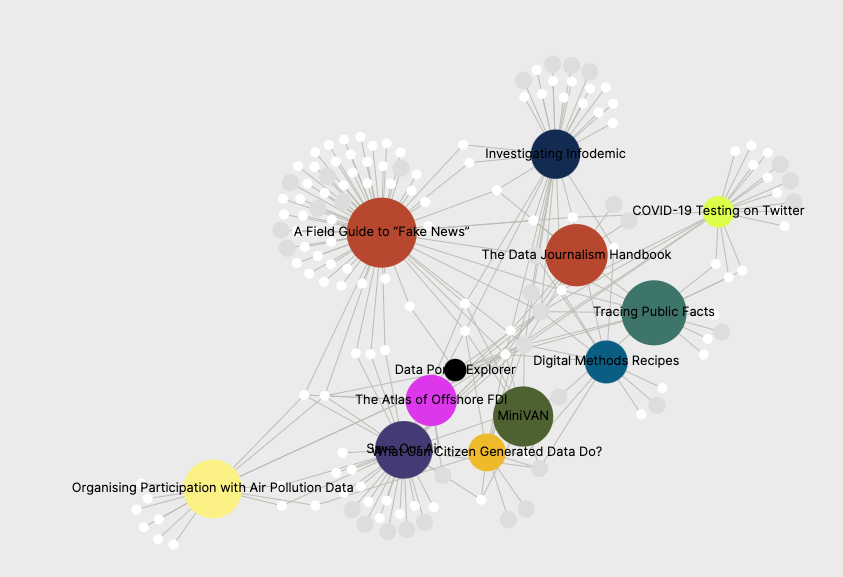This blog is cross-posted from lilianabounegru.org. Further details can be found in this thread.
Today The Data Journalism Handbook: Towards a Critical Data Practice (which I co-edited with Jonathan Gray) is published on Amsterdam University Press. It is published as part of a new book series on Digital Studies which is also being launched today. You can find the book here, including an open access version: http://bit.ly/data-journalism-handbook-2
The book provides a wide-ranging collection of perspectives on how data journalism is done around the world. It is published a decade after the first edition (available in 14 languages) began life as a collaborative draft at the Mozilla Festival 2011 in London.

The new edition, with 54 chapters from 74 leading researchers and practitioners of data journalism, gives a “behind the scenes” look at the social lives of datasets, data infrastructures, and data stories in newsrooms, media organizations, startups, civil society organizations and beyond.
The book includes chapters by leading researchers around the world and from practitioners at organisations including Al Jazeera, BBC, BuzzFeed News, Der Spiegel, eldiario.es, The Engine Room, Global Witness, Google News Lab, Guardian, the International Consortium of Investigative Journalists (ICIJ), La Nacion, NOS, OjoPúblico, Rappler, United Nations Development Programme and the Washington Post.
An online preview of various chapters from book was launched in collaboration with the European Journalism Centre and the Google News Initiative and can be found here.
The book draws on over a decade of professional and academic experience engaging with the field of data journalism, including through my role as Data Journalism Programme Lead at the European Journalism Centre; my research on data journalism with the Digital Methods Initiative; my PhD research on “news devices” at the universities of Groningen and Ghent; and my research, teaching and collaborations around data journalism at the Department of Digital Humanities at King’s College London.
Further background about the book can be found in our introduction. Following is the full table of contents and some quotes about the book. We’ll be organising various activities around the book in coming months, which you can follow with the #ddjbook hashtag on Twitter.
If you adopt the book for a class we’d love to hear from you so we can keep track of how it is being used (and also update this list of data journalism courses and programmes around the world) and to inform future activities in this area. Hope you enjoy it!
Continue reading
